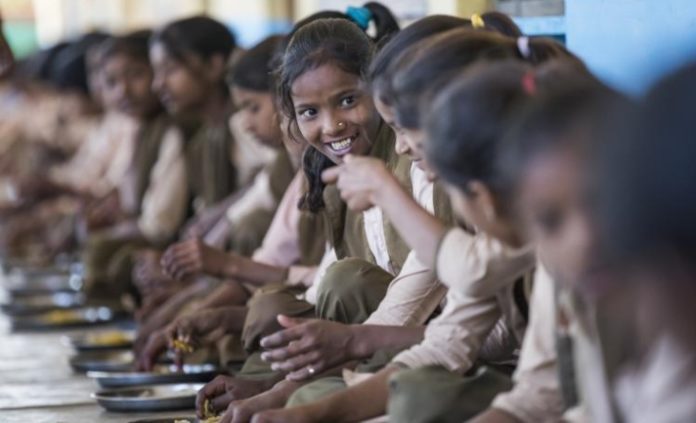New Delhi (NVI): More than 39 billion in-school meals have been missed worldwide since the beginning of the COVID-19 pandemic, a loom in global nutrition crisis due to school closures, according to a UN report.
The joint report of UNICEF Office of Research – Innocenti and the World Food Programme (WFP) showed that 370 million children on average since COVID-19 restrictions shuttered classrooms have missed 40 per cent of in-school meals worldwide.
“With many of whom reliant on the schools meals as a key source of their daily nutrition,” it added.
UNICEF Executive Director Henrietta Fore said that, “Despite clear evidence that schools are not primary drivers of COVID-19 infections, millions of children are facing school closures around the world.”
“Children who depend on schools for their daily meals are not only losing out on an education but also on a reliable source of nutrition. As we respond to the COVID-19 pandemic and await vaccine distribution, we must prioritize the reopening of schools and take action to make them as safe as possible, including through renewed investments in proven infection prevention measures like clean water and soap in every school around the world,” Fore added.
According to the report latest estimates show that 24 million school children are at risk of dropping out of school due to the pandemic, reversing progress made in school enrolment in recent decades, the UN agencies said.
It added school feeding programmes could provide incentives for the most vulnerable children to return to school.
During the pandemic, there had been a 30 per cent overall reduction in the coverage of essential nutrition services including school feeding, micronutrient supplementation, and nutrition promotion programmes in low- and middle-income countries, as well as programmes for the treatment of severe malnutrition in childre, the report said.
Besides, at the time of nationwide lockdowns in some countries, all school feeding programmes were also cancelled.
The report stated that schools meals are not only vital in ensuring children’s nutrition, growth and development, they also provide a strong incentive for children – especially girls and those from the poorest and most marginalized communities – to return to school once restrictions are lifted.
“The longer children are out of school, the greater the risk that they will drop out of education altogether,” it added.
WFP has also been supporting governments to adapt their school meals programmes during school closures and more than 70 countries have been delivered take-home rations, cash transfers or food vouchers, providing a valuable, interim solution for millions of children.
The report noted that, in the first 9 months of 2020, more than 13 million school children received WFP school-based support as compared to 17.3 million the previous year.
It added that since the start of the pandemic, UNICEF has supported national governments to maintain the continuity of nutrition services for school-age children and adolescents.
The UN report further informed that in 2020, nearly 25 million school-age children and adolescents benefitted from programmes for the prevention of anaemia.
Furthermore, the report said where schools were still closed, UNICEF and WFP were urging governments to prioritise their reopening while making sure that the health, food and nutritional needs of children were met through comprehensive, high-quality school feeding programmes.
-RJV








